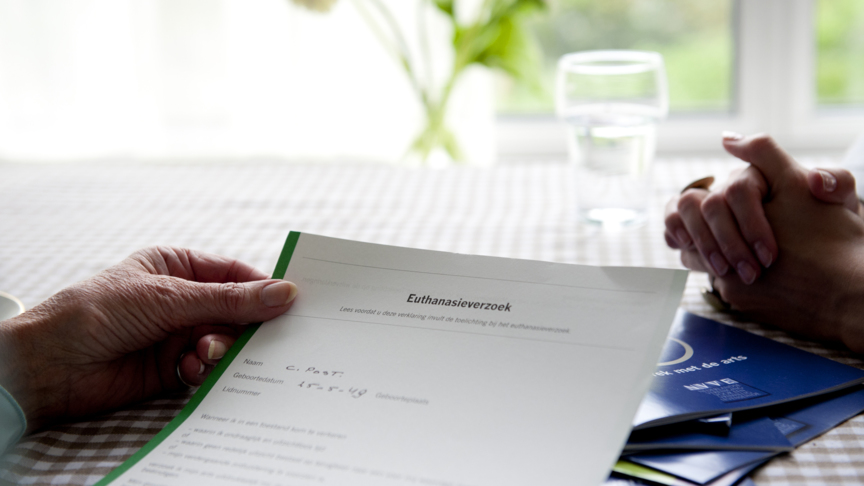MAID: Medical Assistance in Dying and Organ Harvesting
"If we accept people can make decisions to end life, and we accept the idea of cardiac death being sufficient for organ donation, t his should be acceptable."
"The concern that comes up is, could the decision for one drive the decision for the other?"
"There's a lot riding on this. If somebody has organs that would be appropriate to donate, you'll never get better organs than you would by this process [harvest post-] MAID."
Dr. James Downar, co-chair, Canadian Blood Services committee organ donation guidelines
"This [feeling compelled to pursue decision] is a theoretical possibility. Imagine a situation where the workup is done -- people have gone out and done the medical tests and found the recipients and set everything up. And then you change your mind."
"One wonders if perhaps that might create pressure to continue with the MAID. It would be very important in these scenarios to make it very clear to people that they can change their mind at any time -- that someone shouldn't stick with MAID just because they feel an obligation, having set the process in motion."
"I'm torn between a sense of, is it any harm to let people know [the donor died by assisted death]? After all, if it really bothers them, there will be someone else who will benefit greatly from this donation. They will just bypass the person who objects and go to the next."
Jennifer Chandler, professor, centre for health law, policy and ethics, University of Ottawa
"I think it's really important we keep the public's trust, in all of this."
"We have to be transparent. And it has to be clear that the two must be kept separate, that there is no pressure to go for MAID to procure organs [for transplantation]."
"[The terminally ill] may feel they would better serve society by dying and saving other people's lives."
Dr. Marie-Chantal Fortin, transplant nephrologist, Centre hospitalier de l'Universite de Montreal
 |
| Medical team performing surgery on patient who had undergone medically assisted suicide. Getty Images |
The Canadian medical community has recently adopted a practise of urging organ donation after cardiac death involving people on life support for whom the chance of recovery is medically dim. When life support is withdrawn and the heart stops beating, a five- to 10-minute "no touch" period ensues, after which the organ/s can be harvested. Because death takes its time; up to two to three hours; vital organs such as the heart and lungs begin deteriorating, resulting from lack of blood flow and oxygen.
When assisted dying is involved, organs have the potential of being retrieved swiftly once the heart stops within two to three minutes of the injection. What troubles ethicists, however, is the coupling of assisted death and organ donations. What is also to be considered is whether those organ recipients whose moral or religious objections to euthanasia entitles them to be informed that the organ offer has come from someone who chose an medically assisted death. In most instances cause of death is not routinely revealed, such as in the case of suicide, barring a valid medical reason for disclosure.
Even so, the pool of organs to be transplanted from those undergoing medically assisted dying is not a large one, given that most patients requesting assisted dying are suffering from advanced stages of cancer, making their organs transplant-unsuitable. Those, however, suffering from neurological disorders such as multiple sclerosis, have organs that are good candidates for transplant. Over 4,500 people were awaiting an organ donation in Canada in 2014, and from among them 278 died, while waiting for a transplant that never materialized.
So far, in Ontario, 26 people who chose to die by lethal injection have been donors of tissue or organs since decriminalization was passed last June. Since that time, 338 people have died through medical assistance altogether, in the province. Tissue donations represent eyes, skin, heart valves, bones and tendons. Experts feel that those who qualify for aid in dying could gain a sense of psychological comfort in the knowledge they have, through donating their organs, saved someone else's life.
And that comes up hard against those concerned that organ donation decisions might place pressure on those who qualify for assisted death. The issue appears to be, should someone agree to donate their organs, would they feel compelled by those circumstances involving the health and life of other people, to continue the procedure of assisted dying even though they may have decided they would prefer not to proceed?
Two countries that have long since legalized medically assisted death requests -- Belgium and the Netherlands -- appear to have solved the dilemma of their own concerns relating to the issue, and have long harvested organs after euthanasia. Infamously, China operates a thriving organ transplant/tourism 'business' in organs harvested from prisoners who have somehow died while incarcerated. The country stands accused of harvesting organs from still-living prisoners, as well.
 |
| “MAID (medical aid in dying) has the potential to provide additional organs available for transplantation. Accepting to procure organ donation after MAID is a way to respect the autonomy of patients, for whom organ donation is an important value. Organ donation after MAID would be ethically acceptable if the patient who has offered to donate is competent and not under any external pressure to choose MAID or organ donation”. Julie Allard and Marie-Chantal Fortin, bioethicists at the University of Montreal |
Labels: Canada, Disease, Ethics, Euthanasia, Medical Science, Organ Transplants

0 Comments:
Post a Comment
<< Home